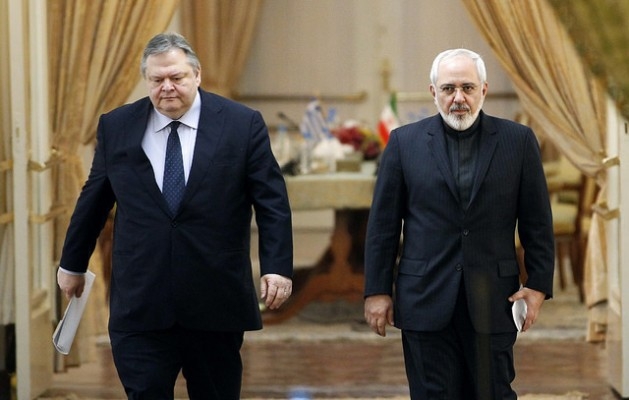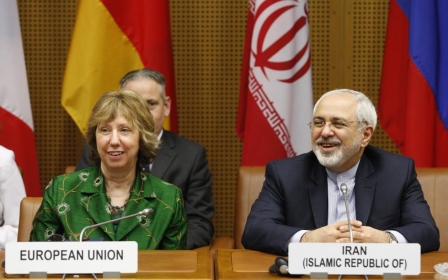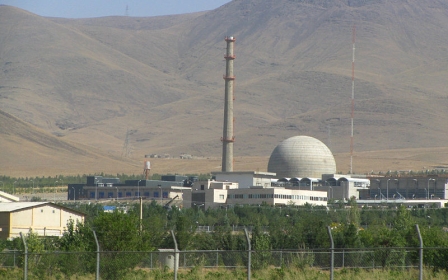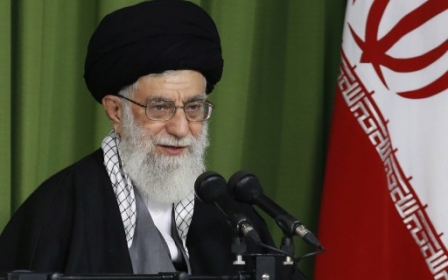Iran nuclear talks enter critical phase

By Jasmin Ramsey
WASHINGTON - Iran and world powers will resume negotiating a final deal on Tehran’s nuclear programme Tuesday in Vienna while experts warn the hardest work is about to begin.
Representatives from Iran and the US indicated last month that the drafting of a final deal would begin during this round of talks scheduled for five days - the longest session since the extended talks that led to the interim “Joint Plan of Action” (JPOA) reached Nov. 24, 2013 in Geneva.
“So far Iran has adhered to its undertaking, and it does seem that both sides are determined to see the negotiations through to success,” Shaul Bakhash, a leading scholar on Iran, told IPS.
“However, very tough negotiations lie ahead; and the fact remains that Iran will have to limit its nuclear programme in substantial and painful ways to satisfy the P5+1 [the U.S., U.K, France, China and Russia plus Germany] and to get sanctions lifted,” said the George Mason University professor.
While media reports have emphasised the 20 July deadline for reaching a final deal under the terms of the JPOA, the agreement also allows for the negotiations to be extended by “mutual consent”.
“This is not a development that is landing in the laps of the negotiators,” said Mark Hibbs, a nuclear policy expert at the Washington DC-based Carnegie Endowment for International Peace.
“These negotiations began in a confidence-building mode by addressing low-hanging fruit and [the negotiators] did that because they know their biggest challenge is a lack of confidence and lack of trust,” he said.
“That means that as time moves along and the negotiations make more progress, the issues they address will become incrementally more difficult, and they’ve been prepared for that,” said Hibbs.
Since the JPOA went into effect on 20 January , Iran has been scaling back and limiting parts of its nuclear programme in exchange for limited sanctions relief.
“That means that as time moves along and the negotiations make more progress, the issues they address will become incrementally more difficult, and they’ve been prepared for that,” said Hibbs.
Since the JPOA went into effect on 20 January, Iran has been scaling back and limiting parts of its nuclear programme in exchange for limited sanctions relief.
An 17 April report by the International Atomic Energy Agency (IAEA) said Iran was complying with the JPOA, but Iran has complained that the lingering effects of the sanctions regime have prevented it from accessing the funds allotted to it under the accord.
Increasing domestic pressure
Attempts by members of the US Congress to impose conditions that some experts likened to “sabotage” and “illusions” for a final deal following the 24 November accord ultimately failed to produce binding legislation.
Those conditions included demands that Iran cease all uranium enrichment and dismantle its entire nuclear programme, two things Iran is allowed to have for purely peaceful purposes according to readings of the Nuclear Non-Proliferation Treaty (NPT) to which Iran is a signatory.
But a successful attempt by the House to attach a “sense of congress” amendment onto the US Annual Defence Bill on May 8 suggests that calls for more conditions for a final deal from Congress could increase as the talks intensify.
“You’ve seen Obama administration officials working very hard behind the scenes to disabuse Congress of any plans to impose additional sanctions that would get in the way of moving forward with Iran,” Hibbs told IPS.
“The real question is whether hardliners in the US who are absolutely determined to prevent President Obama from having a success in this area would throw the baby out with the bathwater and jeopardise a substantial negotiated compromise because they oppose the president for political reasons,” he said.
“So there is pressure, but it’s pressure from the outside, not the inside,” added Hibbs, referring to determination on the part of Iran and the P5+1 to reach a final deal.
The Iranian team under President Hassan Rouhani, which is headed by Foreign Minister Javad Zarif, has also heard domestic criticism of their negotiating strategy ratcheted up in recent weeks.
“There has been criticism of the negotiating team from some members of parliament, commanders of the Revolutionary Guard, prominent members of the clergy and some right-wing newspapers,” noted Bakhash.
“These hard-liners suggest the negotiating team is giving too much away, and is not being tough enough,” he said.
On 3 May, several hard-line Iranian politicians, clerics and commentators gathered at the former US embassy in Tehran for a conference focusing on the talks entitled, “We’re concerned”.
The keynote speakers issued a joint statement arguing that a final deal should guarantee Iran’s rights as a NPT member to a peaceful nuclear programme, sanctions should be lifted according to a clear-cut timeline, and a final deal should be shown to the Iranian public and ratified by the Parliament before it’s finalised.
“The hardliners also seek to undermine Rouhani because they oppose much of his broader policy agenda: integration with the international community abroad; political liberalisation at home; greater freedom for the press; a decrease in the role of the state and an increase in the role of the private sector in the economy; and some curbs on the role of the security agencies and the Revolutionary Guards,” said Bakhash.
“However, it is also noteworthy that these criticisms have been kept relatively muted; or, at least, they have not been allowed to derail the negotiations. This is probably due to guarded support the Leader, Ayatollah Ali Khamenei, has given Iran’s negotiating team,” he added.
“Despite his own publicly expressed reservations and misgivings, he has allowed the negotiations to continue and to make progress,” he said.
“This suggests that he too wants a deal although his final terms may turn out to be unrealistic,” said Bakhash.
The make or break issues
According to Hibbs, the key issues that must be resolved for a final deal include:
- how many centrifuges, which Iran uses to enrich uranium, can be operational;
- the extent to which Iran will be able to do advanced research and development in sensitive technologies including centrifuges and lasers;
- whether or not the powers and the IAEA can be satisfied that Iran’s programme is completely peaceful;
- the terms of sanctions relief to Iran;
- how long Iran must comply with the final agreement.
Hibbs said the length of an final agreement could be a major issue: “Some people in Iran have suggested a couple of years and those close to the administration have said 20 years.”
Another major sticking issue will be sanctions relief.
“The U.S and its partners in the P5+1 need to understand that Iran, too, needs to come out of these negotiations with its principles intact and something positive to show for the concessions it is being asked to make,” said Bakhash.
“Otherwise, the hardliners in Iran will jump on Rouhani and his negotiators for selling out Iran’s interests and gravely undermine the president,” he said.
Middle East Eye propose une couverture et une analyse indépendantes et incomparables du Moyen-Orient, de l’Afrique du Nord et d’autres régions du monde. Pour en savoir plus sur la reprise de ce contenu et les frais qui s’appliquent, veuillez remplir ce formulaire [en anglais]. Pour en savoir plus sur MEE, cliquez ici [en anglais].




